Sri Lanka Travel Blog
Sri Lanka’s Festivals: A Kaleidoscope of Culture and Celebration
Sri Lanka is often described as the “Island of Serendipity,” a land of vibrant traditions and time-honored customs. The island’s festivals are a feast for the senses, showcasing a blend of Buddhist, Hindu, Christian, and Muslim traditions. Whether it’s the rhythmic drumming of the Kandy Esala Perahera or the colorful lanterns of Vesak, Sri Lanka’s festivals offer a glimpse into the heart of its rich culture. Let’s dive into some of the most enchanting festivals celebrated across this beautiful island.
1. Vesak Poya
- When: Full moon in May
- Where: Nationwide, with major celebrations in Colombo and Kandy
Vesak Poya commemorates the birth, enlightenment, and passing of Lord Buddha, making it one of the most important festivals for Sri Lanka’s Buddhist community. The entire country transforms into a luminous wonderland with colorful lanterns, illuminated pandals (decorative structures), and spiritual ceremonies.
What to Expect:
- Visit Colombo’s Gangaramaya Temple to witness elaborate Vesak decorations.
- Enjoy free food and drinks at “dansalas” (almsgiving stalls) set up along the streets.
- Don’t miss the massive Vesak pandals in Pettah and Bambalapitiya.
Cultural Insights:
Vesak is not just a time for celebration but also reflection. Families gather at temples to offer flowers, light oil lamps, and observe Buddhist teachings.
Pro Tip:
Colombo’s Vesak zone is best explored on foot to soak in the vibrant atmosphere.
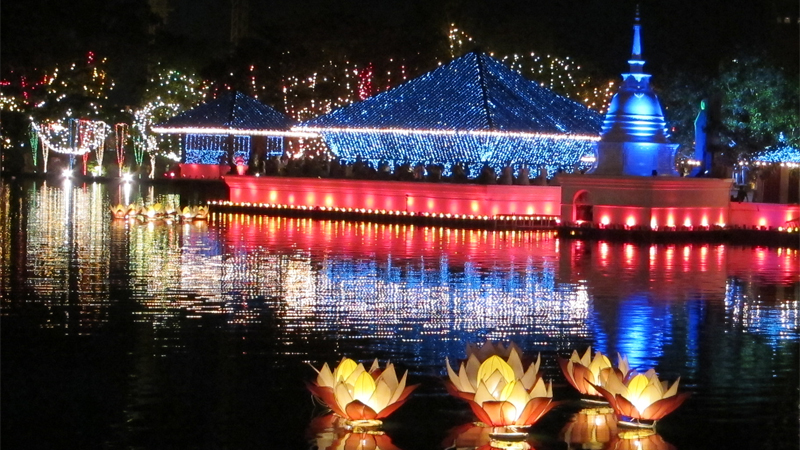
2. Kandy Esala Perahera
- When: Late July to early August
- Where: Kandy
The Kandy Esala Perahera, one of Asia’s grandest festivals, honors the Sacred Tooth Relic of Lord Buddha housed in the Temple of the Tooth. This ten-day procession is a dazzling display of pageantry, featuring fire-dancers, whip-crackers, drummers, and beautifully adorned elephants.
What to Expect:
- Witness the grand finale, the Randoli Perahera, which features over 50 caparisoned elephants.
- Watch cultural performances showcasing Sri Lanka’s ancient dance forms.
- Explore nearby food stalls offering local delicacies like hoppers and kottu roti.
Cultural Insights:
The festival’s origins date back to the 4th century CE when the Sacred Tooth Relic was first brought to Sri Lanka.
Pro Tip:
Book accommodation in Kandy months in advance, as the city becomes a hub for tourists during the festival.
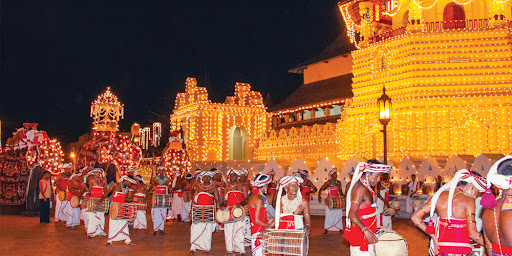
3. Sinhala and Tamil New Year (Avurudu)
- When: April 13-14
- Where: Nationwide, especially prominent in rural areas
Avurudu marks the Sinhala and Tamil New Year, a harvest festival that signifies the end of the harvest season and the beginning of spring. It’s a time of family reunions, traditional games, and delicious feasts.
What to Expect:
- Experience “kiribath” (milk rice) and “kokis” (crispy rice flour snacks) served in every household.
- Participate in traditional games like pillow fights and tug-of-war.
- Visit local fairs for a taste of Avurudu sweets and handicrafts.
Cultural Insights:
The festival’s rituals are meticulously timed based on astrological calculations, from lighting the first hearth to the first meal.
Pro Tip:
Rural villages like Matara and Kurunegala offer the most authentic Avurudu celebrations.
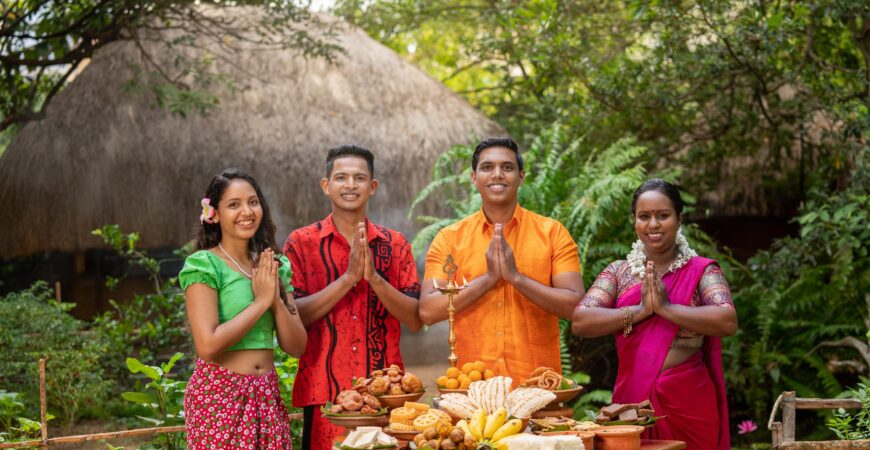
4. Deepavali (Diwali)
- When: October-November (based on the Hindu lunar calendar)
- Where: Nationwide, with major celebrations in Jaffna and Colombo
Deepavali, the Festival of Lights, is celebrated by Sri Lanka’s Hindu community to honor the triumph of light over darkness and good over evil. Homes are decorated with oil lamps, and families gather to pray, feast, and exchange gifts.
What to Expect:
- Visit Hindu temples like Nallur Kandaswamy Kovil in Jaffna for special Deepavali prayers.
- Indulge in traditional sweets like “laddu” and “jalebi.”
- Enjoy colorful fireworks displays that light up the night sky.
Cultural Insights:
Deepavali is also a time for new beginnings, with families purchasing new clothes and cleaning their homes to welcome prosperity.
Pro Tip:
Colombo’s Sea Street is a great spot to shop for festive Indian attire and jewelry.
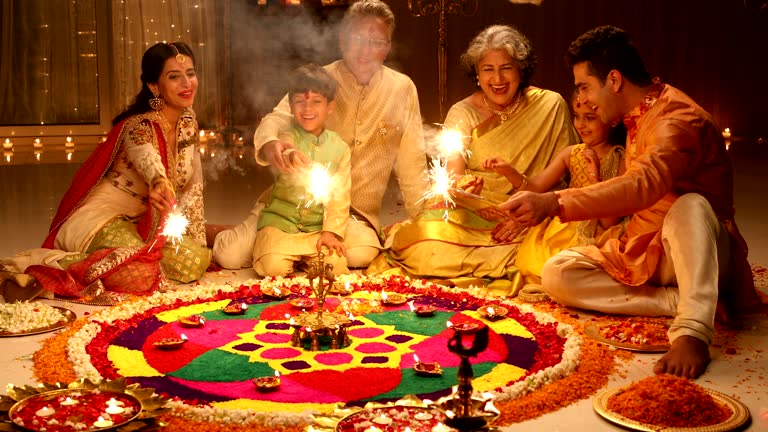
5. Poson Poya
- When: Full moon in June
- Where: Anuradhapura and Mihintale
Poson Poya celebrates the arrival of Buddhism in Sri Lanka in 247 BCE, when Indian monk Mahinda converted King Devanampiya Tissa. The festival is marked by religious observances and cultural events.
What to Expect:
- Climb Mihintale Rock, the site where Mahinda met the king, for panoramic views and a spiritual experience.
- Join pilgrims in Anuradhapura for almsgiving and meditation.
- Enjoy free meals and drinks at Poson dansalas.
Cultural Insights:
Poson is second only to Vesak in importance for Sri Lanka’s Buddhist community.
Pro Tip:
Arrive early at Mihintale to avoid the crowds and enjoy a peaceful climb.
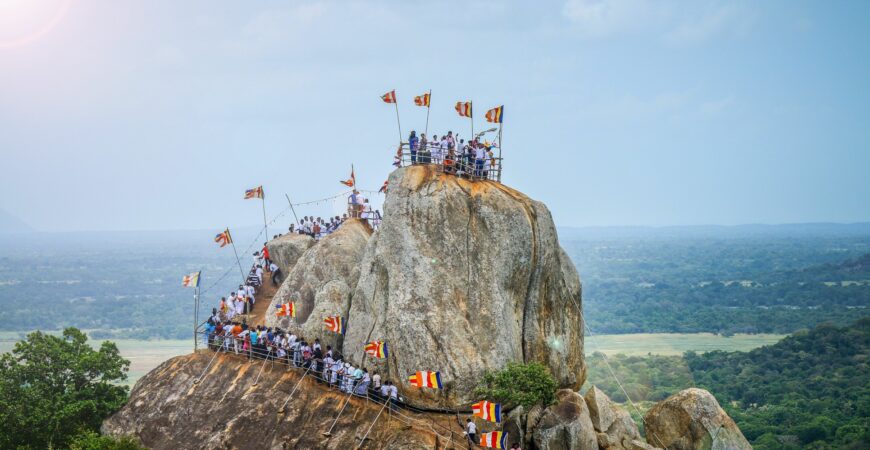
6. Nallur Festival
- When: August (25 days long)
- Where: Jaffna
The Nallur Festival is a vibrant Hindu celebration held at the Nallur Kandaswamy Kovil in Jaffna. The festival’s highlight is the grand chariot procession, accompanied by traditional music and dance.
What to Expect:
- Witness the silver and golden chariots adorned with intricate carvings.
- Participate in daily pujas (prayers) and rituals.
- Sample Jaffna’s unique street food, including “vadai” and “murukku.”
Cultural Insights:
The festival is a testament to Jaffna’s enduring Tamil heritage and attracts devotees from around the world.
Pro Tip:
Dress modestly when visiting the temple, as it’s a sacred space.
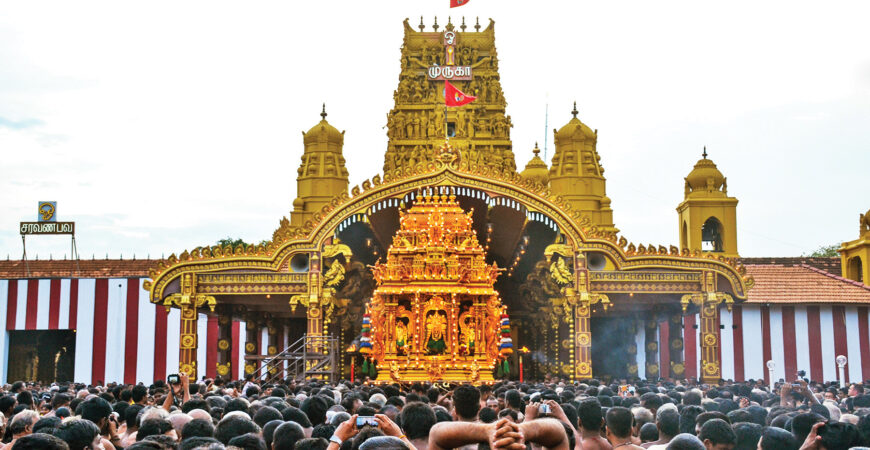
7. Christmas
- When: December 25
- Where: Nationwide, with major celebrations in Negombo and Colombo
Christmas in Sri Lanka is a joyous occasion celebrated with carols, midnight masses, and festive feasts. Negombo, known as “Little Rome,” is the epicenter of Christmas celebrations.
What to Expect:
- Attend midnight mass at St. Mary’s Church in Negombo.
- Explore Colombo’s Christmas markets for gifts and decorations.
- Indulge in festive treats like Christmas cake and breudher (Dutch Christmas bread).
Cultural Insights:
Christmas in Sri Lanka blends Western traditions with local customs, creating a unique festive atmosphere.
Pro Tip:
Don’t miss the Christmas tree lighting ceremonies in Colombo’s shopping malls.
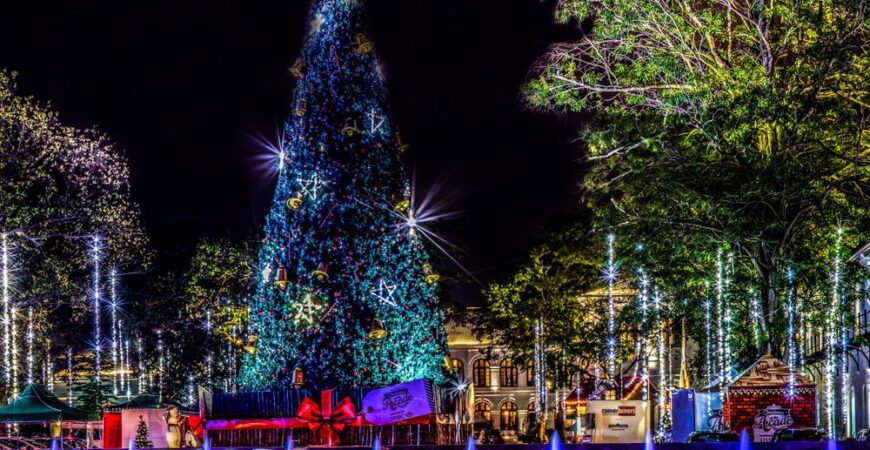
8. Eid al-Fitr
- When: Based on the Islamic lunar calendar (after Ramadan)
- Where: Nationwide, with major celebrations in Colombo and Beruwala
Eid al-Fitr marks the end of Ramadan, the holy month of fasting for Muslims. The festival is a time of prayer, feasting, and charity.
What to Expect:
- Visit mosques like Jami Ul-Alfar Mosque in Colombo for special prayers.
- Enjoy traditional Muslim dishes like biryani and watalappam.
- Experience the spirit of generosity as families distribute food to the less fortunate.
Cultural Insights:
Eid emphasizes community and gratitude, with families gathering to share meals and gifts.
Pro Tip:
Respect the customs of the Muslim community by dressing modestly if attending any celebrations.
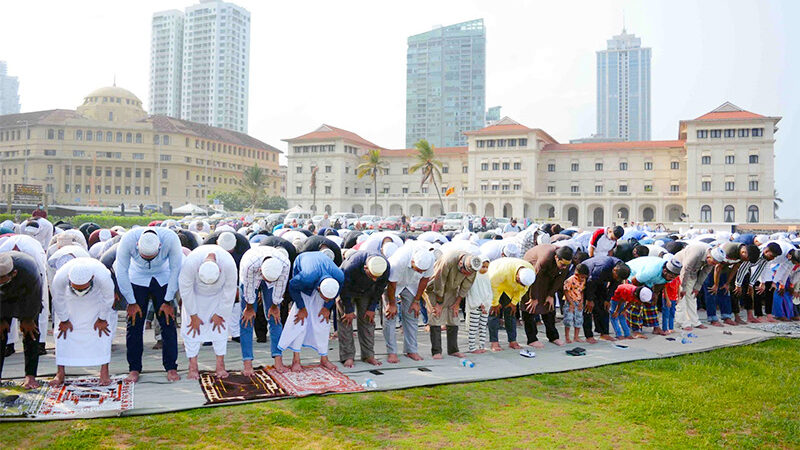
Final Thoughts
Sri Lanka’s festivals are a testament to its rich cultural diversity and deep-rooted traditions. Each celebration offers a unique experience, from the serene to the spectacular. Whether you’re lighting a Vesak lantern, marveling at the grandeur of the Kandy Esala Perahera, or savoring a plate of biryani during Eid, these festivals invite you to connect with Sri Lanka’s soul. So mark your calendar and prepare for a cultural feast like no other.

Ready to Start Your
Sri Lankan Adventure?
Let’s make your dream getaway into an unforgettable journey!
Our Sri Lanka holiday packages make planning effortless while offering authentic experiences. We’ll handle the details, so you can create amazing memories from golden beaches to misty peaks, spicy flavours to cultural treasures. Adventure awaits!
Connect with us today & explore Sri Lanka's magic like never before.
Get a FREE QUOTE
